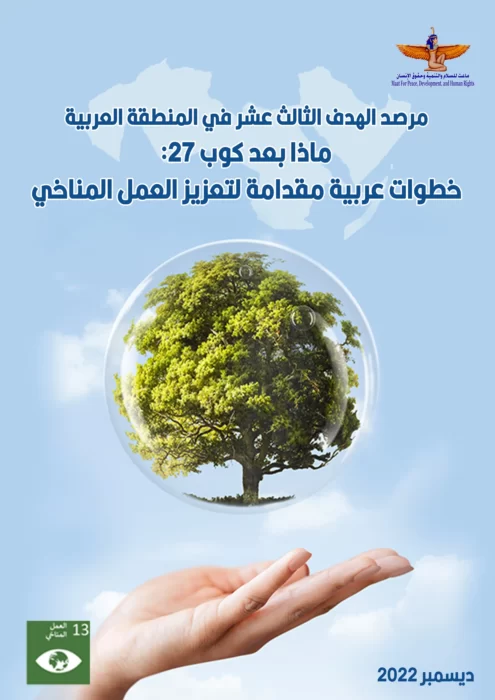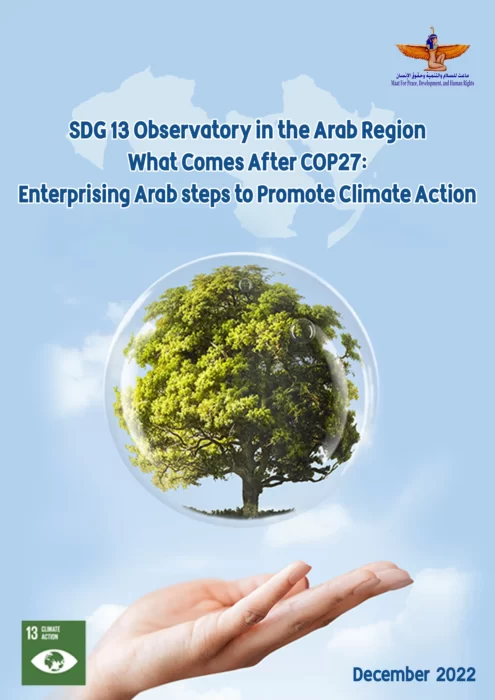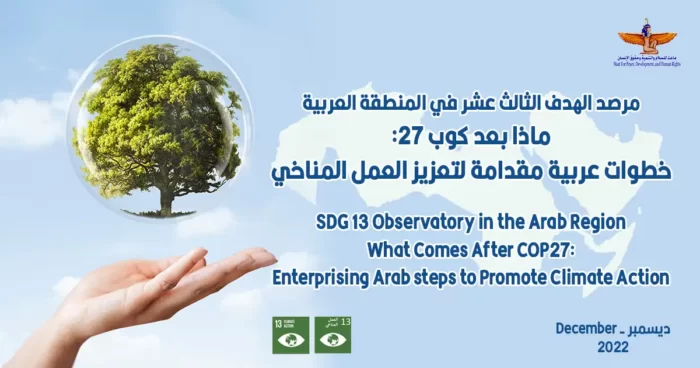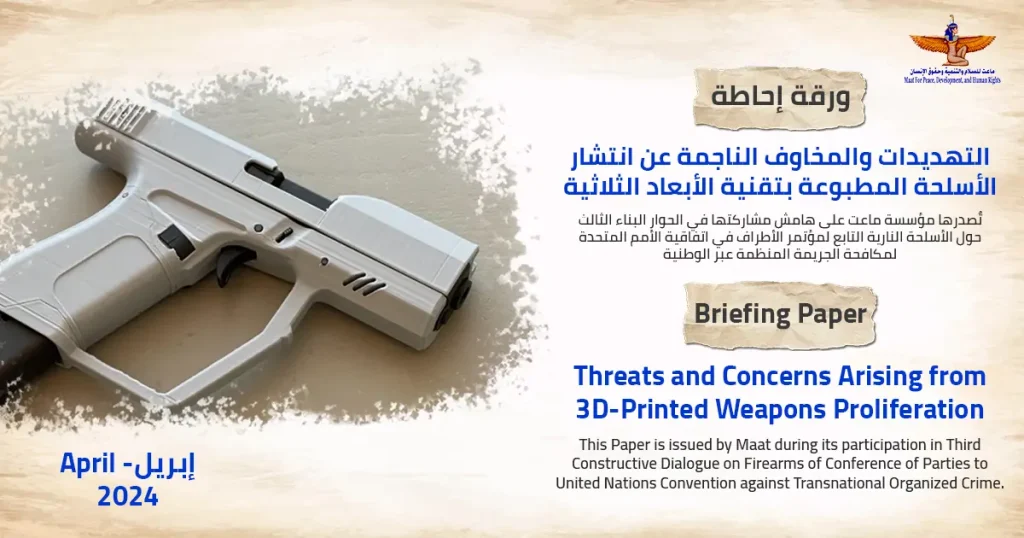Maat, in its 12th Issue of SDG 13 Observatory, Monitors Enterprising Arab steps to Promote Climate Action
Okeil: We urge the League of Nations in cooperation with Arab governments to launch an initiative to reduce climate-related risks
Salah: We demand Arab governments to strengthen the work of youth initiatives concerned with climate action
The climate conference (COP 27) revealed some of the challenges still facing Arab countries in combating climate phenomena. In this context, and by monitoring the movements of the Arab countries in the climate action file during the month of December 2022, Maat for Peace, Development and Human Rights released the 12th issue of the SDG 13 Observatory in the Arab Region, under the title "What Comes After COP27: Enterprising Arab steps to Promote Climate Action", to address the serious steps and intensive activities made by Arab countries in an effort to reconsider the climate file and discuss current gaps and challenges as well as mechanisms to address them, in the context of serious preparation for the upcoming COP28 Summit.
The State of Palestine is the country focus of the twelfth issue of Maat’s monthly Observatory. Although the Palestinians and the occupation forces live in the same geographical area, the Palestinians suffer more due to climate change. The Israeli occupation prevents Palestinians from accessing resources and taking measures that support their adaptation to climate change. In addition, the occupation authorities greatly reduce the adaptive capabilities of the "State of Palestine" in many sectors, which leads to exacerbation and increased vulnerability to extreme climatic phenomena.
Maat also monitored in the December issue excessive increases in temperatures and water scarcity, thus exacerbating the risks associated with climate change in the Arab region. Maat also monitored the efforts of Arab countries, especially those related to cooperation with institutes and associations concerned with green growth and the promotion of the environmental field, in addition to concluding memorandums of understanding between Arab countries which aim to enhancing cooperation between countries to reduce environmental pollution and protect nature.
In this context, Ayman Okeil, an international human rights expert and President of Maat, said that the occupied Palestinian territories are subject to international law on occupation resulting from war, and Israel's occupation is legally responsible for meeting the needs of the population under its occupation, and this responsibility includes, according to the
On the other hand, Okeil called on the League of Arab States, in cooperation with Arab governments, to launch a regional Arab initiative to reduce climate-related risks, provided that the experiences of Arab governments that launched previous regional initiatives be used. He also called on Arab governments to work on launching national strategies that enhance Climate action in the context of political and security instability.
Maryam Salah, a researcher in the Sustainable Development Unit at Maat confirmed that the youth have played a prominent role in supporting climate action, and in that context, the researcher recommended that the governments of Arab countries strengthen the work of start-up youth initiatives to reduce the repercussions of climate change, support and implement these initiatives jointly with the owners of it from youth.
 |
 |











